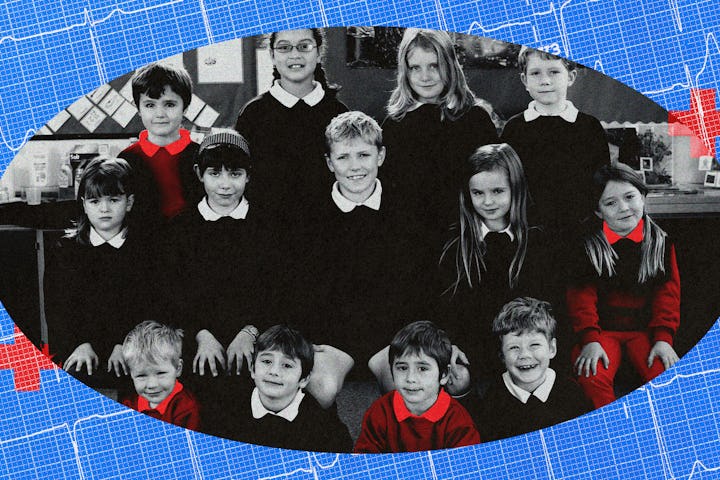ADHD More Common In Younger Kids, But Study Finds The Diagnosis Sticks
The youngest kids are way more likely to be diagnosed with ADHD than their peers, but it doesn’t seem to be a mistake.

There’s a big question in the world of childhood attention-deficit hyperactivity disorder (ADHD): When the youngest kids in the class get diagnosed, do they actually have ADHD? Or do they just seem impulsive and flighty compared to their older, more mature peers? A new study adds to evidence that the youngest kids in the class who are diagnosed actually do have ADHD, because they’re no more likely to lose their diagnosis over time.
Just a few months of an age gap can mean big differences in a child’s maturity and self-control. Indeed, studies have found that the youngest kids in a class are more likely to be diagnosed with ADHD. For example, Fatherly previously reported on a study that found the youngest kids in the class to be twice as likely to be diagnosed with ADHD. “Many believe this is because they lag behind their older classmates,” senior lead author Samuele Cortese, M.D., Ph.D., a child and adolescent psychiatrist at the University of Southampton In England, said in a press release.
"However, no one has ever explored if these younger children who are diagnosed with ADHD retain the diagnosis later on — until now,” he continued. “Our study shows for the first time that these youngsters are no more likely to lose the diagnosis over time than older children."
ADHD doesn’t just come and go; someone who has it, has it for life. So if a child were to lose their ADHD diagnosis as they got older, that would mean they never really had it as a young kid and were misdiagnosed.
The meta-analysis study, which included data from 41 studies, analyzed data from the largest dataset ever created on the link between birth month and whether a child loses their ADHD diagnosis over time. It included 4,708 international participants who were diagnosed with ADHD before age 10, who were followed up with for between 4 and 33 years.
Because the youngest kids in the class were no more likely to lose their diagnosis, this suggests that they’re no more likely to be misdiagnosed with ADHD than the older kids in the class.
"Our work shows the diagnosis of ADHD in children with a young relative age is not especially unstable,” Corentin Gosling, Ph.D., the study’s first author and an associate professor from the University Paris Nanterre in France and visiting researcher at Southampton University, said in the press release.
This doesn’t for sure mean that these young kids do all actually have ADHD as the study couldn’t confirm the accuracy of the diagnosis. It’s possible that once a child is diagnosed with ADHD, it’s difficult to get their diagnosis reversed, even if they don’t actually have it. It’s also possible that older kids with ADHD are less likely to get a diagnosis even if they do have the condition because they seem more mature than their younger peers.
So what does this mean for parents? If you have a young kid who’s being evaluated for ADHD, don’t jump to conclusions that they might not actually have it just because they’re younger than their classmates. Any evaluation should take into account how they behave outside of school, such as at home, where they’re not being compared to older kids anyway. But if your child is one of the youngest kids in the class and can’t keep up with the social and emotional skills of the other kids, it’s worth considering whether you should hold them back a year.